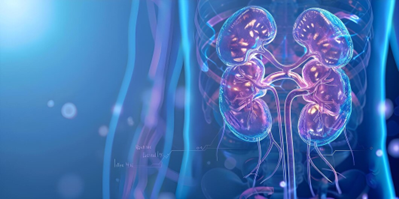Renal hypertension, also called renovascular hypertension, is a type of high blood pressure caused by narrowed arteries that carry blood to the kidneys. When the kidneys don’t receive enough blood, they produce hormones that raise blood pressure. It is important to manage this condition to avoid complications like heart attacks, strokes, and kidney failure.
What is Renal Hypertension?
Renal hypertension occurs when the arteries that supply blood to the kidneys narrow, often due to plaque buildup (atherosclerosis). This reduces blood flow to the kidneys, prompting them to release hormones that raise blood pressure. This form of high blood pressure is treatable once diagnosed.
What are the Causes and Symptoms of Renal Hypertension?
The most common cause of renal hypertension is atherosclerosis. Other causes include fibromuscular dysplasia, arteritides, and blocked arteries due to radiation or surgery.
Symptoms may include:
- High blood pressure that doesn’t respond to medication.
- Sudden worsening of high blood pressure.
- Poor kidney function.
- Fluid buildup in the lungs (pulmonary edema).
Take control of renal hypertension—consult your doctor today if you notice any symptoms!
What tests are used to diagnose renal hypertension?
To diagnose renal hypertension, your doctor will review your medical history and may perform tests, such as:
Duplex ultrasound: Uses sound waves to detect narrowed arteries.
CT Angiography (CTA): Combines X-rays and computer imaging to view arteries.
Magnetic resonance angiogram (MRA): Provides detailed images of blood vessels without radiation.
Catheter angiogram: A more invasive procedure that uses dye to view narrowed arteries and may include stenting to open them.
What Are the Treatment Options for Renal Hypertension?
Treatment usually involves
- Blood pressure medications, such as ACE inhibitors, angiotensin receptor blockers (ARBs), and diuretics.
- For severe cases, procedures like angioplasty with stenting may be performed to open narrowed arteries. Surgery is rare and reserved for cases where other treatments fail.
How Can I Manage Renal Hypertension Naturally?
To help control renal hypertension:
- Eat a heart-healthy diet with fruits, vegetables, and low-sodium foods.
- Exercise regularly.
- Maintain a healthy weight.
- Quit smoking and limit alcohol and caffeine.
- Take medications as prescribed and follow up with your doctor.
Renal hypertension is a serious condition caused by narrowed arteries leading to the kidneys, often due to atherosclerosis. Early detection and proper management are crucial to prevent severe complications like heart attacks, strokes, and kidney failure.


